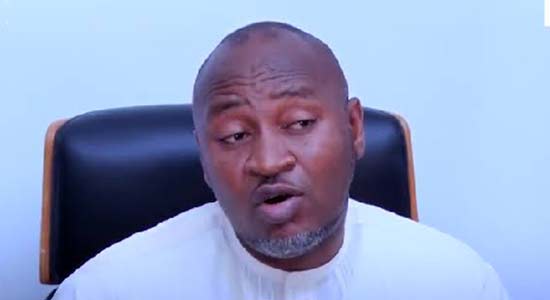Dumebi Kachikwu’s Challenge to ADC Leadership and Critique of Political Coalitions
Dumebi Kachikwu, the African Democratic Congress (ADC) presidential candidate in the 2023 Nigerian elections, has vehemently contested the Independent National Electoral Commission’s (INEC) recognition of the leadership under former Senator David Mark. Kachikwu, in a televised interview, characterized INEC’s decision as “irresponsible,” arguing that it disregarded ongoing legal proceedings challenging Mark’s authority. He expressed confidence that the courts would ultimately vindicate his position, emphasizing that the current leadership is merely “on borrowed time.” This dispute underscores the internal divisions within the ADC and raises questions about the stability and direction of the party moving forward.
Kachikwu’s criticism extends beyond internal party politics to encompass a broader condemnation of established political coalitions. He dismisses these coalitions as offering nothing new to the Nigerian electorate, pointing out that they are composed of former government officials who, in his view, have a track record of failed leadership. He attributes the current state of Nigeria, which he labels a “failed nation,” to the very individuals now seeking to regain political power. Kachikwu’s critique portrays these coalitions as self-serving endeavors motivated by a desire to maintain political relevance and personal enrichment rather than a genuine commitment to national progress.
The former presidential candidate challenges the premise that these experienced politicians are the best hope for rebuilding the nation. He argues that their past performance demonstrates a lack of competence and vision, and their return to power would only perpetuate the cycle of failure. Kachikwu implicitly advocates for a new generation of leaders, suggesting that younger Nigerians possess the necessary skills and integrity to steer the country towards a brighter future. He questions whether his generation and those that follow should simply cede political power to those who have demonstrably failed to deliver on their promises.
Kachikwu’s stance reflects a broader sentiment of disillusionment with the established political order in Nigeria. His criticisms resonate with those who believe the country’s political system needs fundamental change and that recycling old leaders will not lead to meaningful progress. His questioning of the motives of those seeking power also highlights the issue of accountability in Nigerian politics, where leaders are often perceived as prioritizing personal gain over public service.
The legitimacy of David Mark’s leadership within the ADC remains a subject of legal contention. Kachikwu’s assertion that INEC acted irresponsibly by recognizing Mark’s leadership before the courts have resolved the matter underscores the importance of due process and the potential for political interference in electoral processes. The outcome of the legal challenges will likely have significant implications for the party’s future trajectory and its ability to present a united front in future elections.
Kachikwu’s challenge to both the ADC leadership and the broader political landscape raises important questions about the future of Nigerian politics. His criticisms of established political figures and coalitions suggest a growing appetite for new leadership and alternative political approaches. His willingness to challenge the status quo and his advocacy for generational change within the political sphere position him as a voice for those seeking a fresh start and a break from the perceived failings of the past. The ongoing legal battle within the ADC, combined with Kachikwu’s outspoken critique of established political practices, promises to be a significant storyline in the evolution of Nigerian politics in the years to come.














